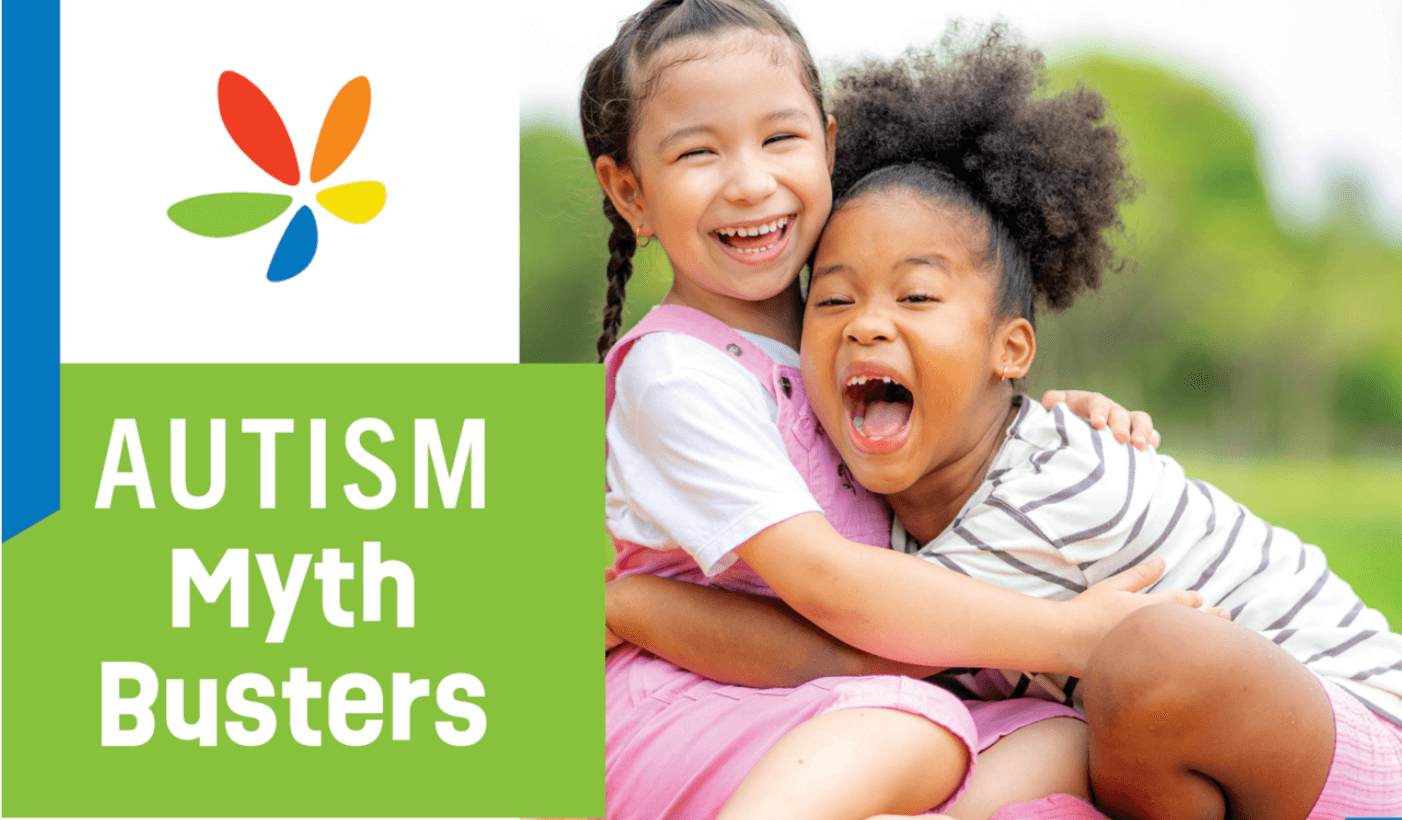Myth: Kids with Autism Don’t Have Emotions

FEATURED POSTS
February 16, 2026
BY KATHERINE JOHNSON, M.S., BCBA
SENIOR DIRECTOR OF PARTNERSHIPS
My cousin, a teenager with a broken heart, lay on my couch, crying. Her little brother, a mostly-non-verbal autistic four-year-old, wiped the tears off of her face and then tickled her to get her to laugh.
A boy I worked with many years ago wanted desperately to get his baby brother to stop crying. He ran to get some scissors and told his mom, “Tag, Tag!” He, himself, was often irritated by tags in clothing, and, seeing his brother inconsolable, believed that maybe the tag in his onesie was the cause of his distress.
A young autistic girl in a social skills group I ran years ago woke up earlier than her parents one day. She got out every glass, bottle, cup, and bowl in the house and arranged them in intricate patterns around the kitchen floor. When her mother got up, she looked up with pride and said, “Mommy, I made breakfast for you!”

Autistic people have emotions. They love, they hurt, they empathize, and they care. So, where in the world did the myth about being “unemotional” come from?
The answer may be in the concept of alexithymia.
Alexithymia refers to the inability to recognize and express emotions. It’s not considered a clinical diagnosis or disorder but rather a condition or a personality trait, and has been studied since the 1970s. It occurs in about 10 to 13 percent of the general population but is more common among people on the spectrum, occurring in close to 50 percent of autistic folks—a high prevalence that may lead to people confusing the trait with autism itself.
If you or your child experiences alexithymia, then you know firsthand that those with this trait still have deep feeling—they just have difficulty naming their emotions and explaining their feelings. Some may not be able to distinguish between their emotions and the bodily sensations connected to them, and may have less imagination or ability to fantasize than those without alexithymia. As one non-autistic man with alexithymia explained it: “Obviously, I’ve got a vocabulary. I’ve got words for emotions. But whether they’re the right words for the right emotion is a different point altogether.…”

Although experts have been unable to pinpoint a cause, research suggests a genetic component, and that environmental factors such as trauma, health conditions, and socioeconomic factors may play a part. A brain injury to the anterior insula can also cause alexithymia.
As parents and caregivers, we are always eager for more information on what we can do to help our children. Since autistic people are more likely to have alexithymia, it is important that family members, service providers, and the community at large understand the condition and the unfortunate risks that come with it. For instance, research suggests that people with alexithymia experience depression and anxiety significantly more often than those without the condition—problems that should be taken seriously and treated.
Anxiety and depression may be due to people not understanding their own feelings, and to the effects alexithymia can have on their personal relationships. For example, some people with the condition report that they know when other people are experiencing negative emotions, which can feel distressing. Not understanding what those emotions are or how to react to them can make the situation even worse. For these reasons, it’s important for others to recognize that what may just seem like a simple skill deficit can affect an individual’s quality of life and well-being far more than they are able to communicate. And of course, if the person also has autism, communication may be even more difficult.
When one team of researchers conducted a meta-analysis of studies on alexithymia and autism, they concluded that although the two things can co-occur, alexithymia is NOT a core feature of autism— although there isn’t yet a consensus. Regardless, since alexithymia appears to increase the risks for mental health challenges like anxiety and depression, and for unhealthy behaviors like greater alcohol consumption and lower levels of physical activity, healthcare providers consider it a trait that is important to identify. This way, alexithymic individuals—autistic and non-autistic alike—can be proactively supported in all of these areas.

The last few years have seen more and more autistic people raising their voices, sharing their experiences, and inviting others to hear their stories. As we listen, it’s important that we all work to dispel myths around autism, so that we can see people for who they truly are. Alexithymic autistic people have emotions, like everyone else. They just need support from loved ones in expressing and processing their feelings, and they need professionals to understand their unique needs so they can provide the best assistance. Likewise, non-alexithymic autistics deserve to be seen as themselves—and not bogged down in harmful myths about their lack of an emotional inner life. Once again, science arrives at a truth that harmonizes with what philosophers have long told us: regardless of what we look like—or behave like—on the outside, we are all humans, craving to connect emotionally with other humans.
For more on mental health and autism, listen to our recent podcast, “Nobody’s Normal: How Culture Created the Stigma of Mental Illness.” Here, Roy Richard Grinker, a professor of anthropology and international affairs at George Washington University, explores stigmas around various diagnoses, including autism.
Gaigg SB, Cornell AS, Bird G. The psychophysiological mechanisms of alexithymia in autism spectrum disorder. Autism. 2018 Feb;22(2):227-231. doi: 10.1177/1362361316667062. Epub 2016 Nov 2. PMID: 27811193.
Martino, G., Caputo, A., Vicario, C. M., Catalano, A., Schwarz, P., Quattropani, M. C. (2020). The Relationship Between Alexithymia and Type 2 Diabetes: A Systematic Review. Frontiers in Psychology, 11, 20-26. DOI: 10.3389/fpsyg.2020.02026.
Kinnaird, E., Steward, C., & Tchanturia, K. (2019). Investigating alexithymia in autism: A systematic review and meta-analysis. European Psychiatry, 55, 80-89. doi: 10.1016/j.eurpsy.2018.09.004.





